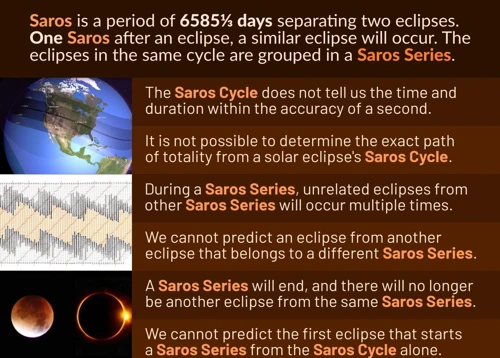Eclipses have fascinated and perplexed humanity for centuries, inspiring awe and wonder. These celestial events, where the sun, moon, and Earth align in a mesmerizing dance, hold significant astrological and cosmic meanings. Astrologers have long believed that eclipses carry powerful energetic frequencies that can influence our lives and shape our destinies. In this article, we will delve into the understanding of eclipses, explore their astrological significance, and uncover how they can impact astrological forecasting. Join us on this journey as we uncover the mysteries of eclipses and discover the profound ways in which they shape our lives.
Understanding Eclipses
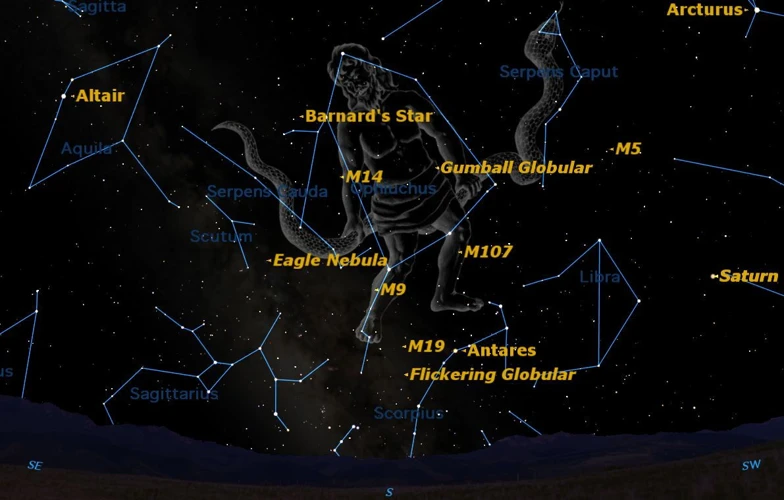
Eclipses are captivating cosmic phenomena that occur when the sun, moon, and Earth align in a mesmerizing dance. During a solar eclipse, the moon passes between the Earth and the sun, temporarily blocking the sun’s light. This creates a rare spectacle as the sky darkens and a radiant “ring of fire” or a partial eclipse becomes visible. On the other hand, a lunar eclipse takes place when the Earth comes between the sun and the moon, casting a shadow on the moon’s surface. The moon may appear reddish or coppery during a total lunar eclipse, earning it the nickname “blood moon.” These celestial events are not mere astronomical occurrences; they carry immense astrological significance and are believed to influence our lives in profound ways. Understanding the mechanisms and symbolism behind eclipses is crucial to unlocking their mystical impact on our astrological forecasts. To explore further, read more about the astrological cycles and long-term forecasting.
1. Solar Eclipses
Solar eclipses are captivating celestial events where the moon passes between the Earth and the sun, casting its shadow on our planet. These awe-inspiring phenomena hold profound astrological significance and are known to create intense energetic shifts. During a solar eclipse, the moon aligns perfectly with the sun, momentarily blocking its light and creating a sense of darkness during the daytime. This alignment symbolizes the merging of the unconscious (represented by the moon) with our conscious self (represented by the sun). The energy of a solar eclipse is potent and transformative, often bringing about new beginnings, endings, and breakthroughs in our lives.
There are different types of solar eclipses, namely total solar eclipses, partial solar eclipses, and annular solar eclipses. A total solar eclipse occurs when the moon completely covers the sun, creating a breathtaking sight where the sun’s corona is visible around the edges of the moon. This rare occurrence is a powerful time for inner reflection, soul searching, and setting new intentions. A partial solar eclipse, on the other hand, happens when the moon only partially covers the sun, resulting in a crescent-shaped sun. While the energy of a partial solar eclipse may be less intense, it still carries transformative potential and can bring about significant changes and opportunities. Lastly, an annular solar eclipse occurs when the moon is farthest from Earth and does not completely cover the sun, leaving a small “ring of fire” visible during the eclipse.
During a solar eclipse, astrologers closely examine the astrological chart to determine the specific areas of life that may be influenced by the eclipse. The zodiac sign in which the eclipse occurs, as well as any aspects to other planets, provide valuable insights into the themes and lessons that may emerge during this time. It is important to note that the effects of a solar eclipse can be felt both individually and collectively. It is crucial to navigate these transformative energies with mindfulness, self-reflection, and a willingness to embrace change.
To better understand the influence of solar eclipses and other astrological phenomena in forecasting, you can read more about retrograde planets and their impact on astrological forecasting.
2. Lunar Eclipses
Lunar eclipses, the counterpart to solar eclipses, hold their own unique astrological significance. When a lunar eclipse occurs, the Earth comes between the sun and the moon, casting a shadow on the moon’s surface. This shadow can vary in intensity, resulting in different types of lunar eclipses, such as total, partial, or penumbral. The energy of a lunar eclipse is often associated with emotions, intuition, and the unconscious mind. It serves as a potent time for reflection, introspection, and releasing emotional baggage. The full moon during a lunar eclipse shines a light on deep-seated emotions, allowing us to gain clarity and insight into our subconscious patterns and desires. Astrologically, lunar eclipses are known for bringing endings and closure, making it a time of letting go and embracing change. The house and zodiac sign in which the lunar eclipse falls in an individual’s birth chart will determine the specific area of life that is most affected. This information is crucial in understanding how lunar eclipses may impact an individual’s astrological forecast. To learn more about analyzing other planetary retrogrades in astrological forecasting, you can refer to our article on analyzing planetary retrogrades in astrological forecasting.
Eclipses and Astrological Significance
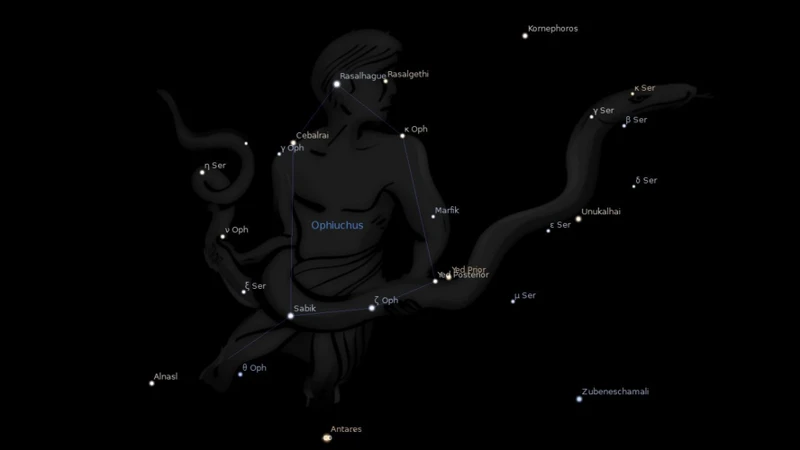
Eclipses hold a deep and profound astrological significance, symbolizing powerful shifts and transformations in our lives. They serve as potent catalysts for change and provide astrologers with valuable insights into future trends. Both solar and lunar eclipses carry unique energies that impact different areas of our lives. Solar eclipses, associated with new beginnings, creativity, and self-expression, are often linked to external events and highlight opportunities for growth and expansion. On the other hand, lunar eclipses, tied to emotions, relationships, and inner reflection, bring to the surface hidden emotions and subconscious patterns, inviting us to release what no longer serves us.
Astrologically, eclipses are seen as times of heightened intensity and amplified energies. The sun, representing our conscious self, is briefly obscured during a solar eclipse, while the moon, symbolizing our emotions and instincts, is temporarily darkened during a lunar eclipse. These celestial events act as cosmic portals, allowing for the influx of new energies and the shedding of old patterns. During an eclipse, the usual balance between light and shadow is disrupted, making it a potent time for personal transformation and spiritual growth.
It is essential to consider the zodiac sign and house in which an eclipse occurs to fully understand its astrological impact. For instance, a solar eclipse in Leo may encourage us to tap into our individuality and step into leadership roles, while a lunar eclipse in Cancer may emphasize the need for self-care and nurturing our emotional well-being. The aspects formed by the eclipse to other planets in the birth chart also play a significant role in determining its influence. These aspects can provide further insights into how the eclipse may intersect with other areas of our lives, such as relationships, career, or personal goals.
To harness the astrological significance of eclipses, astrologers closely observe the houses and planets involved in an individual’s birth chart. By understanding the specific areas of life being activated by an eclipse, they can offer guidance on how to navigate the energies and make the most of the transformative opportunities it presents. By embracing the symbolism and lessons of eclipses, individuals can align with the cosmic currents and consciously work with the energies at play, ultimately leading to personal growth, self-realization, and empowerment. It is important to note that the influence of eclipses extends beyond the visible event itself; their effects can be felt for months or even years, shaping the trajectory of our lives and supporting our soul’s evolution.
How Eclipses Influence Astrological Forecasting
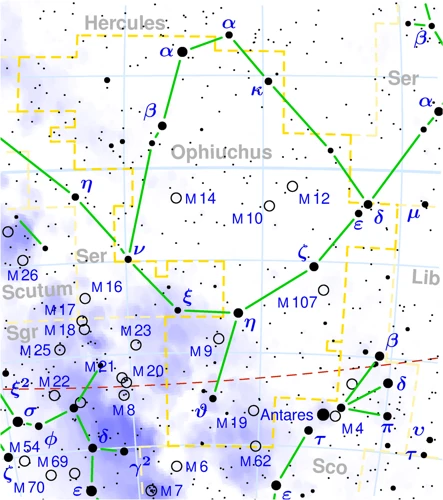
Eclipses hold a potent influence in astrological forecasting, shaping the energy and trajectory of cosmic events. One way they impact forecasts is through the amplification of energy. Eclipses act as powerful catalysts, intensifying the significance of planetary alignments and aspects that occur around the same time. This heightened energy can bring about sudden shifts, breakthroughs, or even challenges, all of which have a deep impact on our lives. Another way eclipses influence forecasting is through the acceleration of change. Just as the moon’s shadow rapidly moves across the Earth during an eclipse, so too do the effects of an eclipse propel us forward on our individual and collective paths. Eclipses can fast-track processes that might otherwise have taken longer to unfold, urging us to adapt and embrace transformation. Eclipses symbolize transformation and rebirth. The temporary darkness and subsequent illumination during an eclipse mirror the cycles of endings and beginnings that we experience in our lives. Eclipses mark a period of shedding old patterns, beliefs, and circumstances, allowing space for new energies and possibilities to emerge. Understanding these dynamics is pivotal in harnessing the power of eclipses in forecasting with accuracy and depth.
1. Amplification of Energy
One of the key ways in which eclipses influence astrological forecasting is through the amplification of energy. During an eclipse, the alignment of celestial bodies intensifies the energetic vibrations and frequencies that they emit. This amplification can have a profound impact on our emotions, thoughts, and actions. Astrologers believe that the energy unleashed during an eclipse can bring about a sense of urgency and heightened awareness in our lives. It is as if the universe is turning up the volume on the lessons we are meant to learn and the changes we need to make. This intensified energy can be both exhilarating and overwhelming, as it pushes us to confront and address aspects of ourselves and our circumstances that may have been ignored or overlooked. It is a time of heightened sensitivity, where we may feel the emotions and energies of those around us more profoundly. The amplification of energy during an eclipse serves as a cosmic reminder for us to pay attention, make necessary adjustments, and embrace the transformative opportunities that lie ahead. It urges us to be mindful of our thoughts, intentions, and actions, as they carry greater weight and manifestation power during this potent time. So, as an astrologer or enthusiast, when analyzing the astrological effects of an eclipse, it becomes crucial to consider the amplification of energy and its potential consequences in our forecast interpretations.
2. Acceleration of Change
The influence of eclipses goes beyond amplification of energy; they also bring about an acceleration of change. When an eclipse occurs, it acts as a catalyst, intensifying the energy and pushing us towards transformation. It is a time of rapid growth and progress, where events that would usually take months or years to unfold can happen in a matter of weeks or days. This acceleration of change can be exhilarating and overwhelming at the same time. It is as if the universe hits the fast-forward button, propelling us into new territories and pushing us outside our comfort zones. During this period, we may find ourselves unexpectedly facing significant life events, making crucial decisions, or experiencing sudden shifts in our relationships, careers, or personal growth. The acceleration of change during eclipses encourages us to embrace adaptability, flexibility, and courage as we navigate the unpredictable and transformative energies that these celestial events bring. It reminds us that change is inevitable and, when embraced, can lead to profound personal and spiritual growth.
3. Transformation and Rebirth
Transformation and rebirth are fundamental themes associated with eclipses in astrological forecasting. When an eclipse occurs, it signifies a powerful shift in energy, urging us to let go of the old and embrace the new. It is a period of profound transformation, where stagnant patterns and beliefs can be released, making way for growth and renewal. Eclipses serve as catalysts for personal and collective change, pushing us to confront our deepest fears and embark on a transformative journey. During these times, emotions can be heightened, and our intuition may guide us towards the necessary changes needed for our evolution. The energy of an eclipse is potent and can bring sudden and unexpected events or opportunities that propel us forward in our spiritual and personal development. It is a time to shed old versions of ourselves, step into our authenticity, and unlock our true potential. Embracing the transformative energy of eclipses allows us to experience profound inner growth and rebirth, creating a powerful ripple effect in all aspects of our lives.
Preparing for an Eclipse
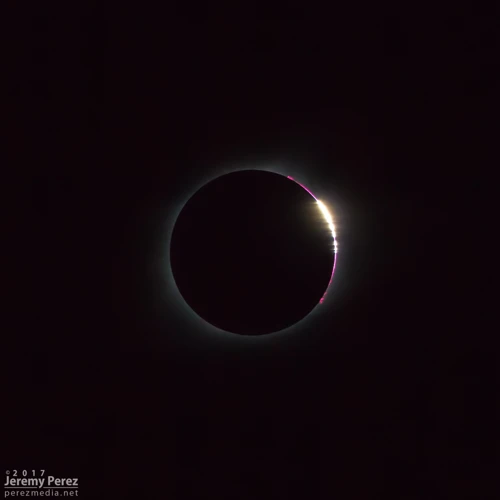
Preparing for an eclipse involves embracing the powerful energies that come with this celestial event. It is a time for introspection and self-reflection as we align ourselves with the cosmic forces at play. Self-reflection allows us to delve into our inner selves, uncovering hidden truths and gaining clarity about our path. It is a time for deep contemplation and understanding of our desires, fears, and aspirations. Setting intentions is another essential aspect of eclipse preparation. During this time, our intentions become amplified, and the universe is more receptive to our thoughts and desires. By setting intentions, we can align our energy with the transformative energies of the eclipse, allowing us to manifest our dreams and goals. Finding balance is also crucial during eclipse preparation. The intense energy of an eclipse can be overwhelming, so it is essential to find ways to ground ourselves and maintain equilibrium. Whether through meditation, yoga, or spending time in nature, finding balance helps us navigate the intense energies and harness their potential for growth and transformation.
1. Self-Reflection and Introspection
Self-reflection and introspection are essential practices during times of eclipses. As the celestial bodies align and cosmic energies intensify, it becomes an opportune moment to turn our gaze inward and delve deep into our inner selves. Eclipses act as cosmic spotlights, illuminating the hidden aspects of our lives and pushing us to confront unresolved emotions and patterns. This introspective period allows us to reflect on our past actions, beliefs, and relationships, providing a fertile ground for personal growth and transformation. It is a time to ask difficult questions, confront our fears, and gain clarity about our true desires. Journaling, meditation, and therapy can be powerful tools for self-reflection during this time. With each eclipse, we are presented with an opportunity to shed old layers, release what no longer serves us, and embark on a journey of self-discovery. Embracing this process empowers us to align our lives more authentically with our values and purpose. So, during an eclipse, take the time to explore your inner landscape and engage in deep self-reflection.
2. Setting Intentions
Setting intentions during an eclipse is a powerful practice that aligns our desires with the potent energy of the celestial event. When we set intentions, we consciously focus our thoughts and aspirations on specific goals or desires we wish to manifest in our lives. During an eclipse, this practice takes on an even greater significance. The intense energy of the eclipse acts as a catalyst, magnifying our intentions and propelling them forward into the universe.
To begin the process of setting intentions during an eclipse, find a quiet and serene space where you can fully connect with your inner self. Reflect on what you truly desire and what areas of your life you wish to bring positive change or growth. This introspective process allows you to identify your deepest desires and align them with the energetic vibration of the eclipse.
Once you have clarity on your intentions, write them down on a piece of paper. Use strong and affirmative language, as if your intentions have already come to fruition. For example, instead of saying “I want to find love,” write “I am attracting a loving and nurturing relationship into my life.” This phrasing empowers your intentions and helps to manifest them with confidence.
After writing down your intentions, take a few moments to visualize and feel the emotions associated with their fulfillment. Envision yourself living your desired reality, experiencing the joy, fulfillment, and abundance that comes with it. This visualization process strengthens the energetic connection between your intentions and the eclipse energy.
To further enhance the setting of intentions, you can create a ritual around it. Light candles or incense, use crystals or sacred objects, and engage in soothing practices like meditation or deep breathing. These rituals serve to deepen your focus and intention-setting process, allowing you to fully immerse yourself in the energy of the eclipse.
Remember, setting intentions during an eclipse is not a one-time event. The eclipse acts as a portal, but the real work lies in aligning your thoughts, beliefs, and actions with your intentions in the days, weeks, and months that follow. Regularly revisit your written intentions and take inspired actions towards manifesting them, even after the eclipse has passed.
By setting intentions during an eclipse, you harness the heightened energy and cosmic support to bring your desires into reality. The universe responds to your clarity, intention, and alignment, paving the way for positive changes and manifestations in your life. Embrace the transformative power of setting intentions during an eclipse and unlock the limitless potential within you.
3. Finding Balance
Finding balance is a key theme when it comes to navigating the influence of eclipses in astrological forecasting. As eclipses can bring about intense energies and shake things up in our lives, it becomes crucial to find equilibrium amidst the chaos. Here are some ways to achieve this balance:
1. Self-care and self-awareness: Prioritize self-care during eclipse periods. Engage in activities that promote relaxation, such as meditation, yoga, or spending time in nature. Self-awareness is also essential. Take the time to reflect on your emotions, thoughts, and behaviors. This introspection can help you gain clarity and maintain emotional stability.
2. Establishing boundaries: Eclipses can stir up intense emotions and bring unexpected events. Establishing boundaries in your personal and professional life can help you maintain a sense of stability and protect your energy. Clearly communicate your needs and priorities, and don’t be afraid to say no when necessary.
3. Practicing moderation: Strive for moderation in all areas of your life. Avoid extremes and find a middle ground. This applies to various aspects, such as work-life balance, relationships, and even indulgences. By practicing moderation, you create a harmonious environment that supports your emotional well-being.
4. Seeking support: Surround yourself with a supportive network of friends, family, or even professional counselors or therapists. Sharing your thoughts and emotions with trusted individuals can help alleviate stress and provide guidance during challenging times.
5. Embracing adaptability: Eclipses can bring unexpected changes and opportunities. Embrace adaptability and be open to new possibilities. Instead of resisting change, view it as an opportunity for growth and transformation. This mindset will help you maintain balance and navigate the shifting energies with greater ease.
By incorporating these practices into your life during eclipse periods, you can find the balance necessary to navigate the influence of eclipses in astrological forecasting. Remember, finding equilibrium is an ongoing process, and each eclipse presents a unique opportunity for growth and self-discovery.
Interpreting Eclipses in Birth Charts
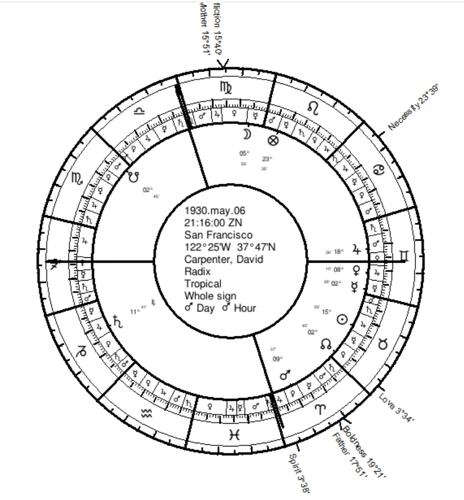
Interpreting the influence of eclipses in birth charts is a fascinating practice that allows astrologers to gain deeper insights into an individual’s life path and potential. When a solar eclipse aligns with a personal planet in a birth chart, it signifies a powerful new beginning or a significant shift in that area of life. This transformative energy can be harnessed to set intentions and embrace personal growth. Similarly, a lunar eclipse occurring near a natal planet reveals areas of release, completion, or emotional transformation. These celestial alignments provide valuable guidance for individuals, helping them understand the energetic patterns and potential changes they may experience throughout their lives. By analyzing the specific planetary placements and aspects involved in an eclipse, astrologers can provide personalized insights and guidance to navigate the profound influences of these celestial events in one’s birth chart.
1. The Impact of Solar Eclipses
Solar eclipses have a profound impact on astrological forecasts, creating powerful energetic shifts and influencing various aspects of our lives. Here are some key ways in which solar eclipses can influence our lives:
- Igniting New Beginnings: Solar eclipses mark the beginning of powerful new cycles and beginnings. They bring fresh opportunities, allowing us to set intentions and make significant changes in our lives. During a solar eclipse, the sun’s energy is temporarily blocked, symbolizing a pause before a powerful surge forward.
- Highlighting Shadow Work: Solar eclipses are known for illuminating our shadows and unresolved issues. They bring these hidden aspects to the forefront, encouraging us to confront and heal them. It is a time of self-reflection and introspection, allowing us to release old patterns and embrace personal growth.
- Amplifying Manifestation: Solar eclipses act as potent manifestation portals. The intense energy generated during a solar eclipse amplifies our intentions and desires, making it an ideal time to set goals and visualize what we wish to manifest in our lives. Taking conscious action during this time can yield powerful results.
- Bringing Surprising Opportunities: Solar eclipses often present unexpected opportunities and serendipitous events. These can come in the form of sudden career advancements, new relationships, or unforeseen breakthroughs. It is essential to remain open and adaptable during this time to embrace the unexpected.
- Challenging Comfort Zones: Solar eclipses may push us out of our comfort zones and encourage personal growth. They often bring situations that test our resilience and require us to overcome obstacles. Embracing these challenges can lead to transformation and personal empowerment.
Solar eclipses are potent astrological events that hold immense power for change and growth. Understanding and harnessing the energy of solar eclipses can provide valuable insights into our astrological forecasting and help navigate the path ahead.
2. The Influence of Lunar Eclipses
Lunar eclipses are remarkable celestial events that hold immense astrological significance. When the Earth casts its shadow on the moon, it symbolizes a culmination or completion of cycles, making lunar eclipses a potent time for releasing and letting go. The energy of a lunar eclipse is intense and transformative, bringing to light emotions, patterns, and subconscious beliefs that may have been hidden or suppressed. This unveiling allows for deep healing and the opportunity to release emotional baggage that no longer serves our highest good. During a lunar eclipse, the energy is particularly heightened, making it an ideal time for self-reflection, introspection, and inner work. It’s a powerful moment to delve into our emotions, confront our fears, and explore our subconscious patterns. Lunar eclipses also lend themselves to matters of relationships and emotions. They can illuminate hidden dynamics within partnerships, bringing clarity and understanding to issues that may have been previously overlooked. It’s a time of heightened sensitivity and receptivity, allowing us to tap into our intuition and gain valuable insights into our relationships and emotional well-being. Embracing the transformative energy of lunar eclipses can lead to profound growth, healing, and spiritual evolution.
Eclipse Cycles and Long-Term Forecasting
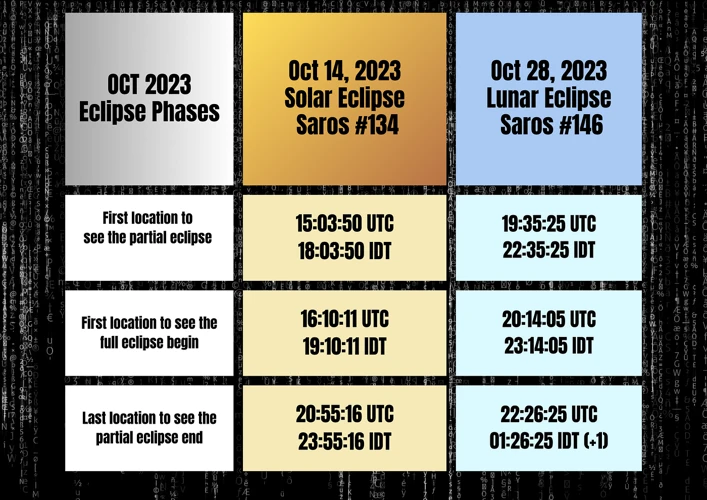
Eclipse cycles play a vital role in long-term astrological forecasting, providing valuable insights into the unfolding patterns and themes of our lives. These cycles consist of a series of eclipses that occur over a specific period of time, often spanning several years. One of the most notable eclipse cycles is the Saros cycle, which repeats every 18 years and 11 days. Each Saros cycle comprises a sequence of solar and lunar eclipses that display similar characteristics and occur in the same zodiac signs. The repetition of eclipse patterns allows astrologers to identify and interpret recurring themes in individuals’ lives and on a collective level. By observing the placement of these eclipses within a birth chart and analyzing their interactions with other astrological factors, astrologers can make predictions about significant life events, major shifts in consciousness, and societal transformations that may unfold during the cycle. The study of eclipse cycles in long-term forecasting offers a unique perspective on the interconnectedness of celestial energies and life’s unfolding journey. It invites us to embrace the cosmic dance of eclipses and navigate the ebb and flow of life’s ever-changing tides.
Historical Significance of Eclipses
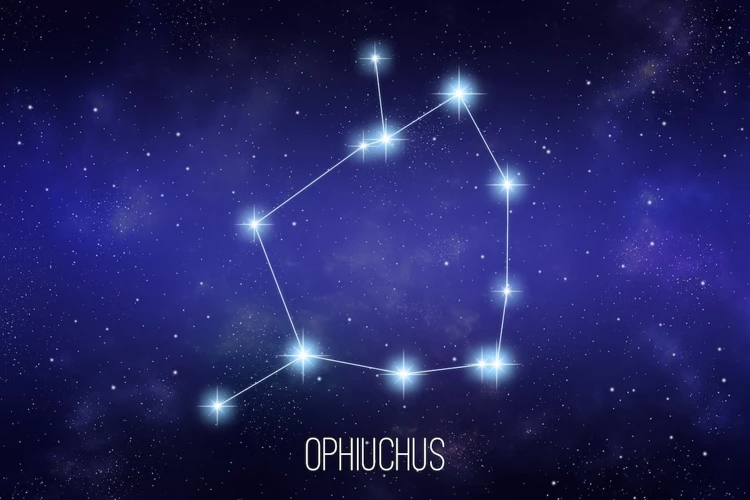
Throughout history, eclipses have held immense historical significance, often being viewed as omens or portents of significant events. Ancient civilizations, such as the Egyptians, Greeks, and Mayans, considered eclipses to be celestial messages from the gods. The Babylonians were skilled astronomers who carefully recorded and tracked eclipses, believing they held great political and social significance. In China, historical records indicate that astronomers were appointed to predict and interpret eclipses, and their accuracy was vital to the emperor’s rule. One of the most well-known examples of the historical importance of eclipses is the Battle of Halys in 585 BCE. During this battle, a solar eclipse occurred, prompting a truce between the warring Lydians and Medes, solidifying an end to the conflict. Eclipses have been documented in the annals of history and feature prominently in religious, cultural, and mythological narratives. Their historical significance showcases the deep fascination and awe that eclipses have invoked in civilizations across the globe.
Common Myths and Misconceptions

One common myth surrounding eclipses is that they bring only negative energy and should be feared. However, this belief is far from the truth. While it is true that eclipses can bring intense and transformative energies, they are not inherently negative or harmful. In fact, they offer us a unique opportunity for growth and self-reflection. Another misconception is that eclipses have immediate and drastic effects on our lives. While they can certainly bring about shifts and changes, these effects are not always immediate or obvious. Eclipses act as catalysts, setting events into motion that may unfold over time. It is important to remember that our individual birth charts play a significant role in how eclipses manifest in our lives. No two individuals will experience the same effects. Finally, it is a common misconception that eclipses only impact those with planets or points directly affected by the eclipse. The truth is that eclipses can have an influence on all of us, regardless of whether they directly aspect our natal chart. The energy of the eclipse can permeate the collective consciousness, affecting society as a whole. By dispelling these myths and misconceptions, we can approach eclipses with a clearer understanding and open ourselves up to the transformative potential they hold.
The Future of Eclipses and Astrology
As we look toward the future, the nexus of eclipses and astrology continues to captivate and intrigue both enthusiasts and skeptics alike. The future of eclipses and astrology is shaped by advancements in technology, scientific understanding, and evolving astrological practices. With the advent of modern astronomy, we can now accurately predict celestial events like eclipses with astounding precision. This allows astrologers to incorporate these predictions into their astrological forecasting, providing them with a valuable tool for understanding the cosmic energies at play. The accessibility of astrological knowledge and resources through the internet has empowered individuals to explore and engage with astrology on a deeper level. As interest in astrology grows, so does the inquiry into the role of eclipses in astrological interpretation and forecasting. As we progress, it is likely that we will witness innovative techniques and approaches in incorporating eclipses into astrological practices, further refining our understanding and harnessing the power of these celestial events. Ultimately, the future of eclipses and astrology holds the promise of continued exploration, discovery, and a deeper connection between the cosmos and our individual journeys.
Conclusion
In conclusion, the influence of eclipses in astrological forecasting is undeniable. These celestial events carry potent energies that amplify and accelerate change in our lives. Eclipses serve as powerful catalysts for transformation and rebirth, urging us to reflect, set intentions, and seek balance in our lives. By understanding the impact of eclipses on birth charts, astrologers can gain valuable insights into the unique energies and life themes associated with each eclipse cycle. While historical significance and common misconceptions surround eclipses, it is important to approach them with curiosity and an open mind. As astrology continues to evolve, the study of eclipses will play a crucial role in shaping our understanding of cosmic influences on human lives. So, let us embrace the mysteries of eclipses with awe and wonder, as they guide us on a celestial journey of self-discovery and enlightenment.
Frequently Asked Questions
1. How often do solar eclipses occur?
Solar eclipses are relatively rare events, occurring approximately two to five times per year. However, they are not visible everywhere on Earth, as their visibility depends on the specific location and alignment of the sun, moon, and Earth.
2. Are lunar eclipses more common than solar eclipses?
Yes, lunar eclipses are more frequent than solar eclipses. On average, there can be two to four lunar eclipses in a year. Unlike solar eclipses, lunar eclipses are visible to a much larger portion of the Earth’s surface.
3. Can I watch a solar eclipse with the naked eye?
No, it is not safe to look directly at a solar eclipse with the naked eye. The intense brightness of the sun during an eclipse can cause serious damage to your eyes. Always use proper safety equipment, such as eclipse glasses or solar filters, to protect your eyes when viewing a solar eclipse.
4. Do eclipses have any scientific significance?
Absolutely! Eclipses have immense scientific importance. They provide opportunities for scientists to study the sun, moon, and Earth’s interactions, exploring topics such as the sun’s corona, solar flares, and the moon’s composition. Eclipses also help refine measurements of time, positions, and other astronomical parameters.
5. Can eclipses influence human emotions or behavior?
While there is no scientific evidence to support a direct influence on human emotions or behavior, many people believe that eclipses can have subtle energetic effects. Astrologers often interpret eclipses as significant cosmic events that may amplify certain energies or bring about shifts and changes in our lives.
6. Can I take photographs of a solar eclipse?
Yes, it is possible to capture stunning photographs of a solar eclipse. However, photographing an eclipse requires special precautions and equipment to protect both your eyes and your camera. Always use proper solar filters or lenses specifically designed for solar photography to capture the beauty of a solar eclipse.
7. How long does a solar eclipse typically last?
The duration of a solar eclipse varies depending on various factors such as the type of eclipse and where it can be observed from. On average, a total solar eclipse can last for a few minutes, while a partial solar eclipse can be visible for several hours.
8. Can I see a lunar eclipse from anywhere on Earth?
Yes, lunar eclipses are visible from any location on the Earth’s nighttime side where the moon is above the horizon during the eclipse. However, the visibility and extent of the eclipse may vary depending on the geographical location.
9. Are there any special rituals associated with eclipses?
Throughout history, various cultures and societies have attributed spiritual or symbolic significance to eclipses and conducted rituals or ceremonies during these events. These rituals often involve prayers, meditation, and acts of introspection aimed at harnessing the purported cosmic energies of an eclipse.
10. How accurate is astrological forecasting during eclipses?
Astrological forecasting during eclipses is not an exact science. It is important to approach astrological interpretations with an open mind and understand that they are subjective interpretations based on ancient beliefs and practices. Astrologers analyze various astrological factors during eclipses to provide insights and guidance, but individual experiences may vary.

